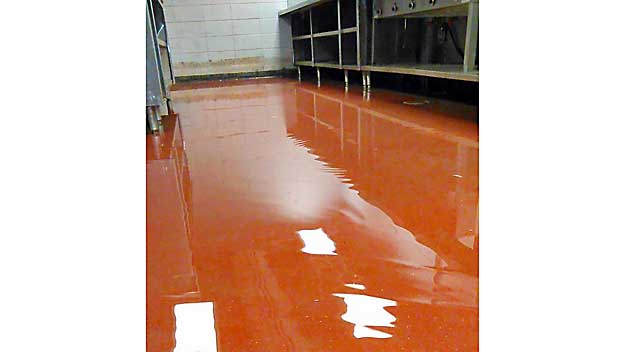Mississippi looking for housing for 625 maximum-security inmates after prison unit found unsafe
Published 10:02 am Thursday, January 16, 2020

- When it rains at Parchman, water floods many cells and even the kitchen. Inmates regularly post photos and videos of the water pouring into Unit 29. Special to MCIR
Mississippi officials said they are looking to find different housing arrangements for 625 maximum-security inmates who had been housed at Parchman’s Unit 29, which was damaged in a recent prison outbreak.
More than two dozen inmates sued the state Tuesday, saying understaffed prisons are “plagued by violence” and inmates are forced to live in decrepit and dangerous conditions. All of the plaintiffs have been inmates in the Mississippi State Penitentiary at Parchman.
Between Dec. 29 and Jan. 3, five inmates were killed and an undisclosed number of others were injured in violence inside Mississippi’s prisons.
Because of damage caused during the unrest, hundreds of prisoners were moved from one unit at the Parchman to another unit there that closed years ago because of decrepit conditions. The state then entered an emergency contract to move 375 of those inmates to a private prison nearby.
Outgoing Commissioner of the Mississippi Department of Corrections Pelicia Hall said in a news release Monday that even after moving the 375 inmates, the state would have to find different housing for 625 other maximum-security inmates who had been housed at Parchman’s Unit 29, which was damaged in the violence.
Hall and her predecessors repeatedly told Mississippi legislators that prisons have too few guards because the pay is low and working conditions can be dangerous. As lieutenant governor, Reeves was one of the top budget writers.
State corrections officials are seeking an additional $67 million for the budget year that begins July 1 at the three state-run prisons. That would allow them to hire 800 more guards, raise guards’ starting salaries from the current $25,650 to $30,370, and increase pay for current employees.
Officials also are requesting $22.3 million to renovate Unit 29.
Bryant sought some increased prison funding, but not as much as $67 million. Top legislators are recommending that Mississippi spend even less next year than this year.





